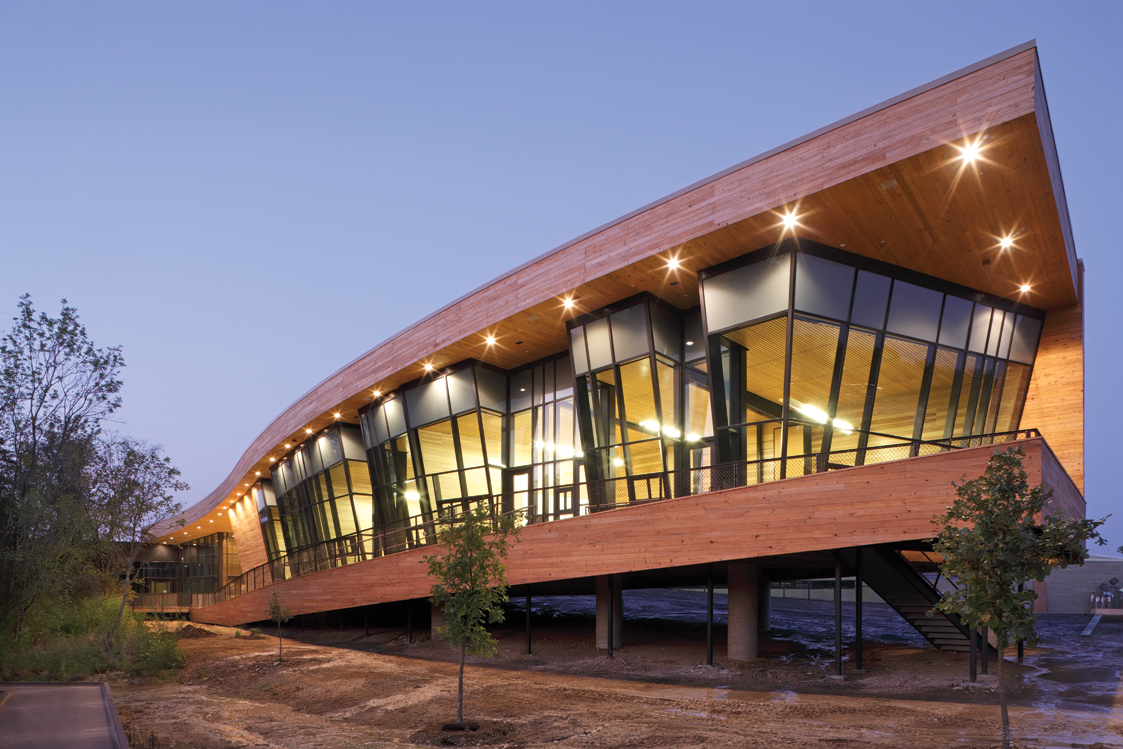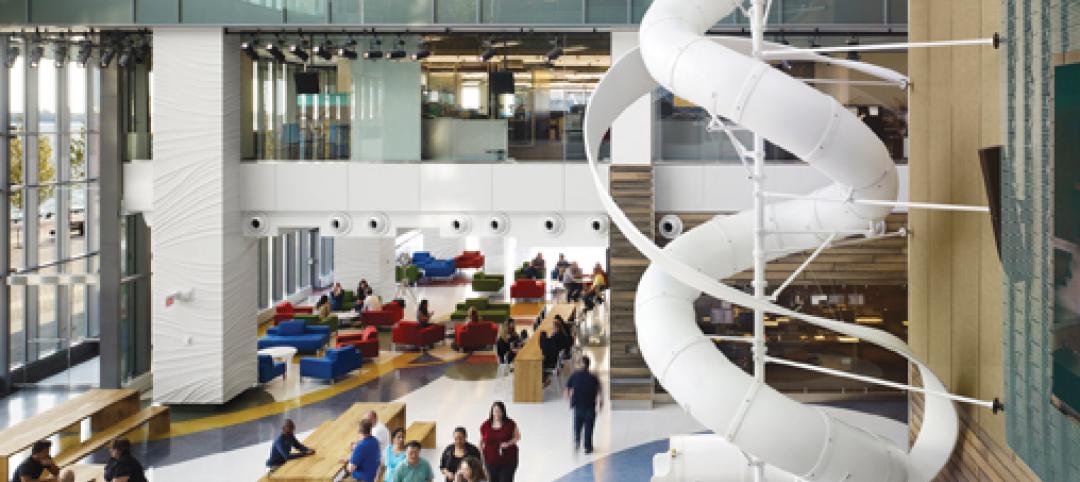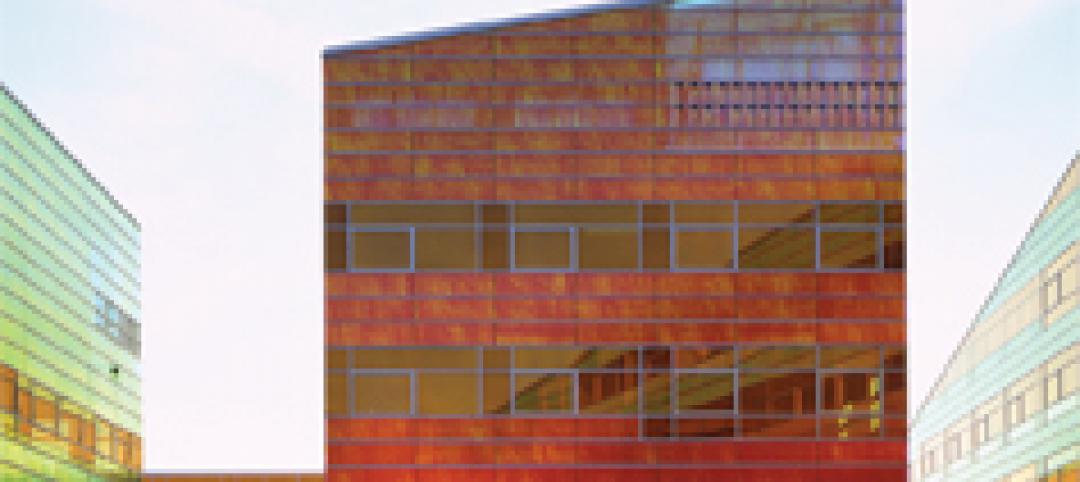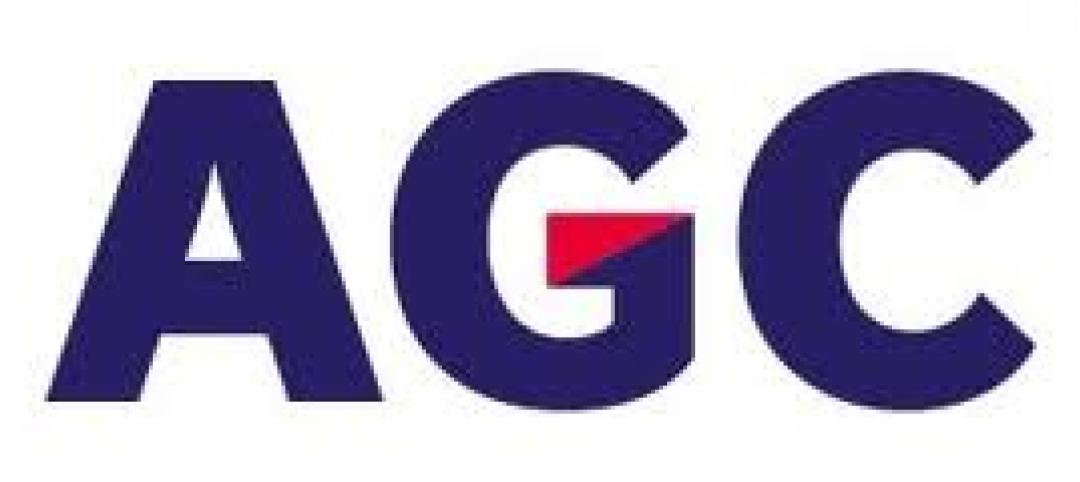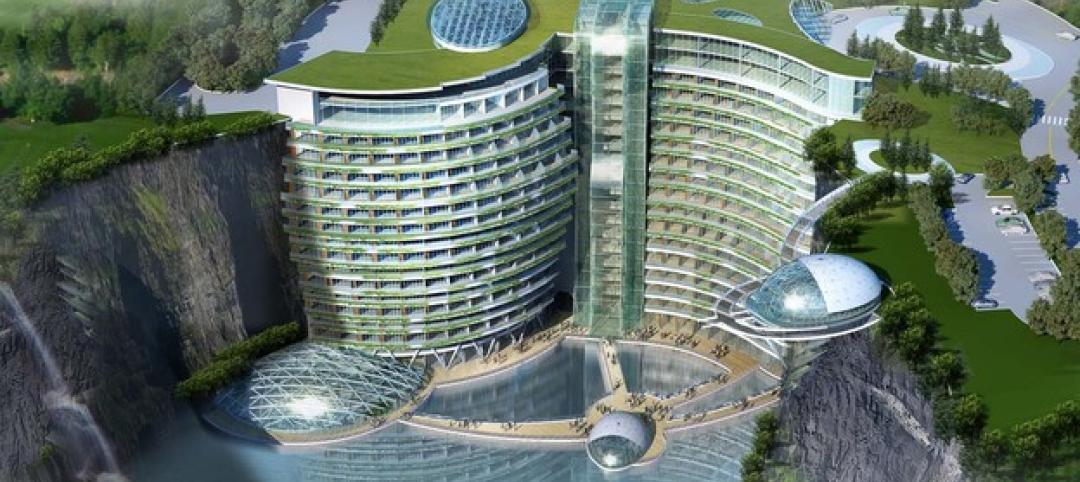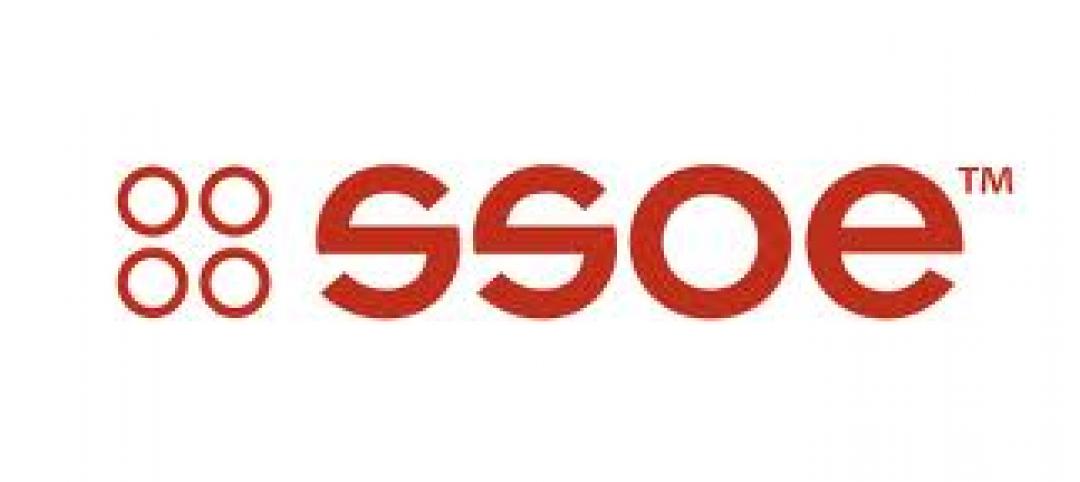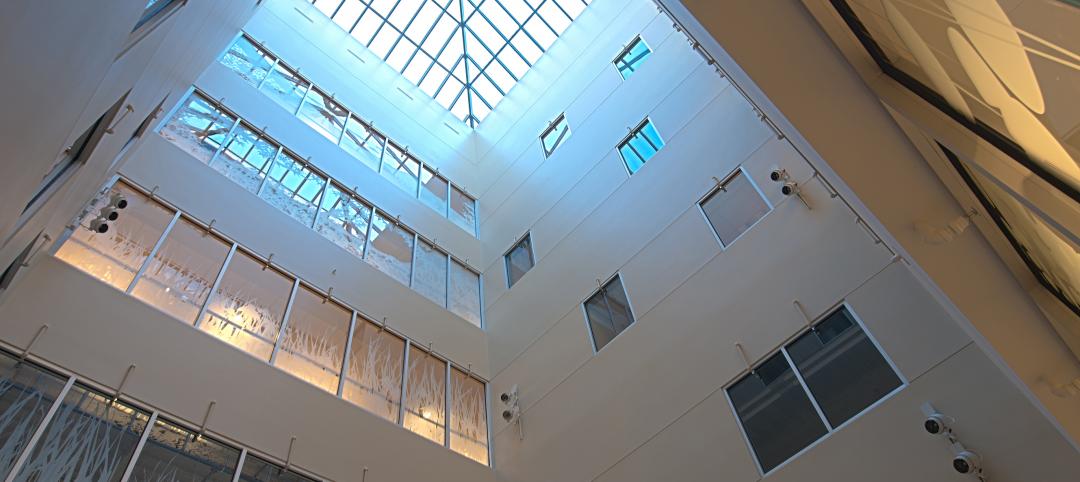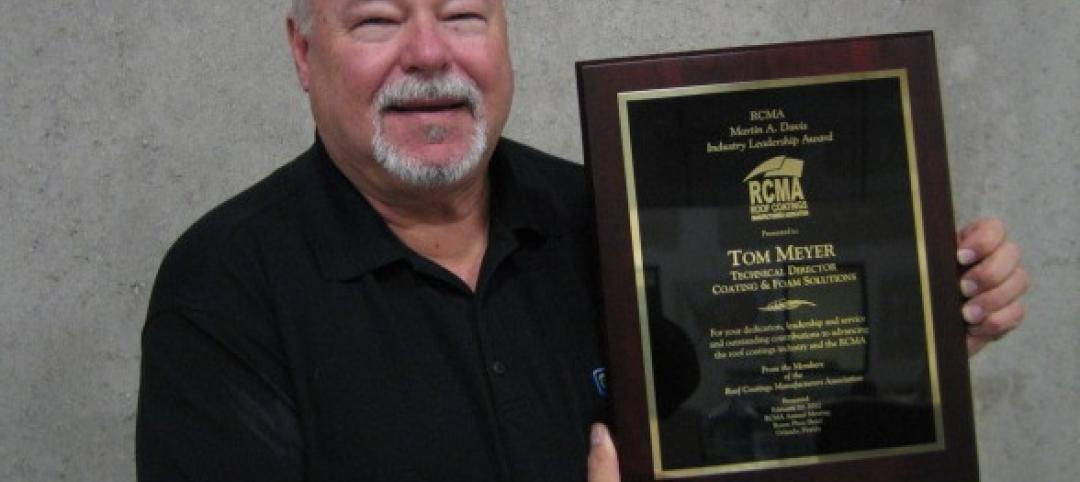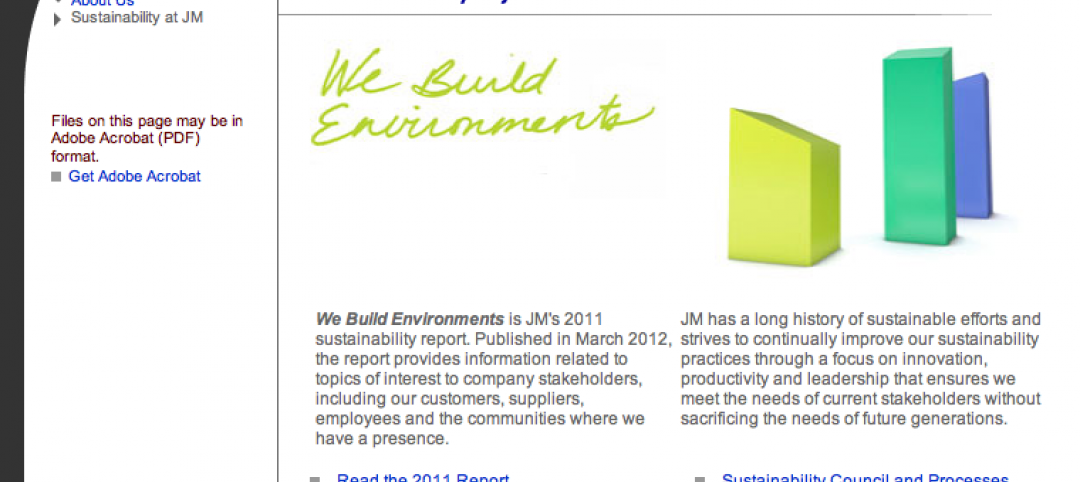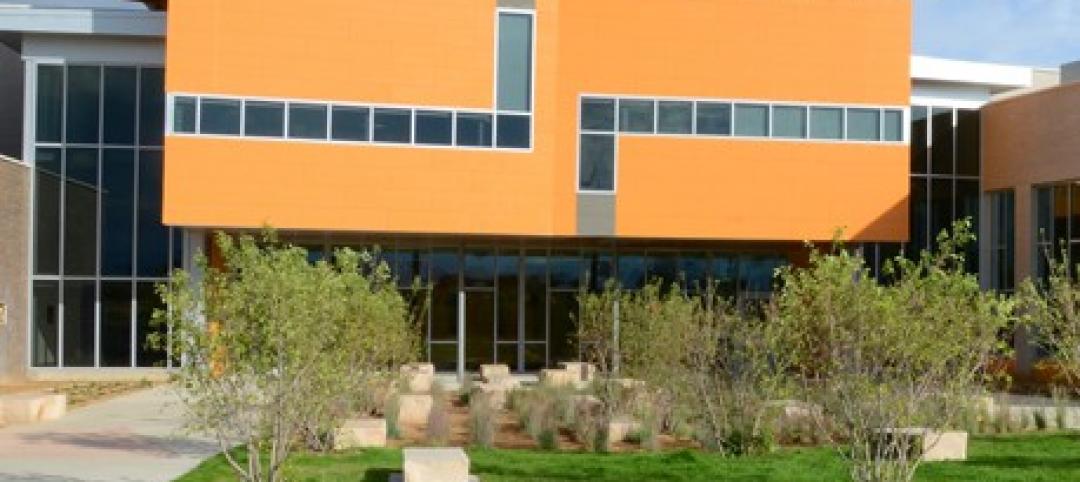Located just eight miles from downtown Dallas, the Trinity River Audubon Center seems a world away, sitting on 120 acres within the 6,000-acre Great Trinity Forest—the largest urban hardwood forest in the U.S. It seems only natural that the 22,000-sf facility would be designed to blend in with its wooded surroundings, but the architects’ decision to clad parts of the building in cypress was an unexpected choice.
The locally sourced cypress was selected “for its beautiful appearance, as well as its natural rot resistance and longevity,” says Gary DeVries, project manager for Brown Reynolds Watford Architects, the Dallas-based design firm that collaborated on the project with Antoine Predock Architect, Albuquerque, N.M.
The center has three wings—each expressing a different site element: forest, prairie, and water; the cypress siding was used on the exterior walls, fascia, and soffits of the center’s education or “forest” wing. An exhibit hall, gift shop, and administrative offices occupy the other two wings. Black anodized aluminum panels, concrete tilt-up, pre-weathered metal panels, and rough sawn boards were used to clad other sections of the building.
The three wings are tapered, angled, and cantilevered, sometimes to extremes (in one instance, a cantilevered canopy extends 48 feet) so that from the air the facility resembles a bird in flight. The building’s visual movement made it difficult to frame so the concrete subcontractor and the steel fabricator had to precisely coordinate their work. Because of those angles, the glazing contractor had to contend with creating a curtain wall with vertical framing installed on a cant ranging from 70 to 90 degrees, some of which varied between the 70 and 90 degrees on the same elevation. Moreover, curtain wall framing members ranged in height from 10 to 20 feet.
Ultimately, the team decided it was easier to custom fabricate the curtain wall on site. It took five months to fully enclose the building. Fortunately, the cypress cladding went up without a hitch, according to Jared Hicks, LEED AP, project manager for general contractor Sedalco, Fort Worth, Texas. “The building slopes a lot, there are large elevation changes, and the architects wanted boards running true horizontal in some places and running with the slope in other places,” says Hicks, “but installation was standard tongue and grove and the siding went up pretty easily.”
Hard to believe, but the building’s dramatically angular architecture wasn’t the most difficult problem the Building Team encountered. It was rain. And more rain. “In June the rain started coming and it didn’t stop, which is very unusual for us,” says Hicks. The team was only able to work six days that month and lost more than 130 days to weather over the course of the project. The Trinity River swelled to within 10 feet of finish floor and made the entrance to the job site impossible. Given the extremes of weather, the team was granted an extension and completed the $12.5 million facility one month before the center’s planned grand opening.
Visitors to the center have access to classrooms, indoor and outdoor museum exhibits, a discovery garden, and a below-grade aquarium designed to look like it’s part of the adjacent pond. Sedalco created more than two miles of nature trails, which included construction of bridges and boardwalks. They had to tread lightly, however, because they were under orders to disturb as little vegetation as possible. All equipment had to fit on the trails, which were only six feet at their widest. Steel erection and deck framing for the bridges and boardwalk wound up having to be completed without equipment.
The center has submitted for LEED Gold certification, with features such as the locally sourced cypress and other sustainable woods (including pecan millwork and wall paneling and bamboo floors), a partially vegetated roof, rainwater collection, and insulation made from old jeans contributing to the center’s sustainability. Perhaps the most significant green element is the building’s former brownfield site. Despite its location within a forest preserve, the land had been used for more than 15 years as an illegal dumping ground, and site remediation cleared away 1.5 million tons of trash. Native hardwood trees and prairie grasses now grow in place of trash piles. BD+C
Related Stories
| Apr 3, 2012
Product Solutions
Two new PV systems; a lighter shelf; and fire alarm/emergency communication system.
| Apr 3, 2012
Blaine Brownell on innovative materials applications in architecture
Brownell, who was named a BD+C 40 Under 40 in 2006, provides insight regarding emerging material trends and the creative implementation of materials.
| Apr 3, 2012
AGC Glass to reopen shuttered plant
Shuttered since 2008, the plant produces clear and tinted float glass serving architectural glass markets.
| Apr 3, 2012
Luxury hotel 'groundscraper' planned in abandoned quarry
Would you spend $300 a night to sleep underground? You might, once you see the designs for China's latest hotel project.
| Apr 3, 2012
SSOE acquires MEP Firm CRS Engineering & Design Consultants
The acquisition will expand SSOE’s Southeastern U.S. presence, broaden CRS’s reach to international markets, and provide both firms’ clients access to enhanced services and resources.
| Apr 3, 2012
Suffolk completes phase one of Baystate Medical Center expansion
Construction management firm awarded emergency department project for successful build of $296 million MassMutual Wing and Davis Family Heart and Vascular Center.
| Apr 3, 2012
Meyer receives RCMA's Martin A. Davis Industry Leadership Award
The Martin A. Davis Industry Leadership Award is presented annually to an individual, selected by his or her peers, who has exemplified outstanding service and made significant contributions to the roof coatings industry.
| Apr 3, 2012
Johns Manville publishes 2011 Sustainability Report
Report covers JM’s long-time sustainability focus and progress towards goals.
| Apr 3, 2012
Educational facilities see long-term benefits of fiber cement cladding
Illumination Series panels made for a trouble-free, quick installation at a cost-effective price. The design for Red Hawk Elementary School stems from the desire to create a vibrant place for kids to learn. In an effort to achieve this design, RB+B Architects selected Nichiha USA to provide a durable yet modern, contemporary exterior finish.


